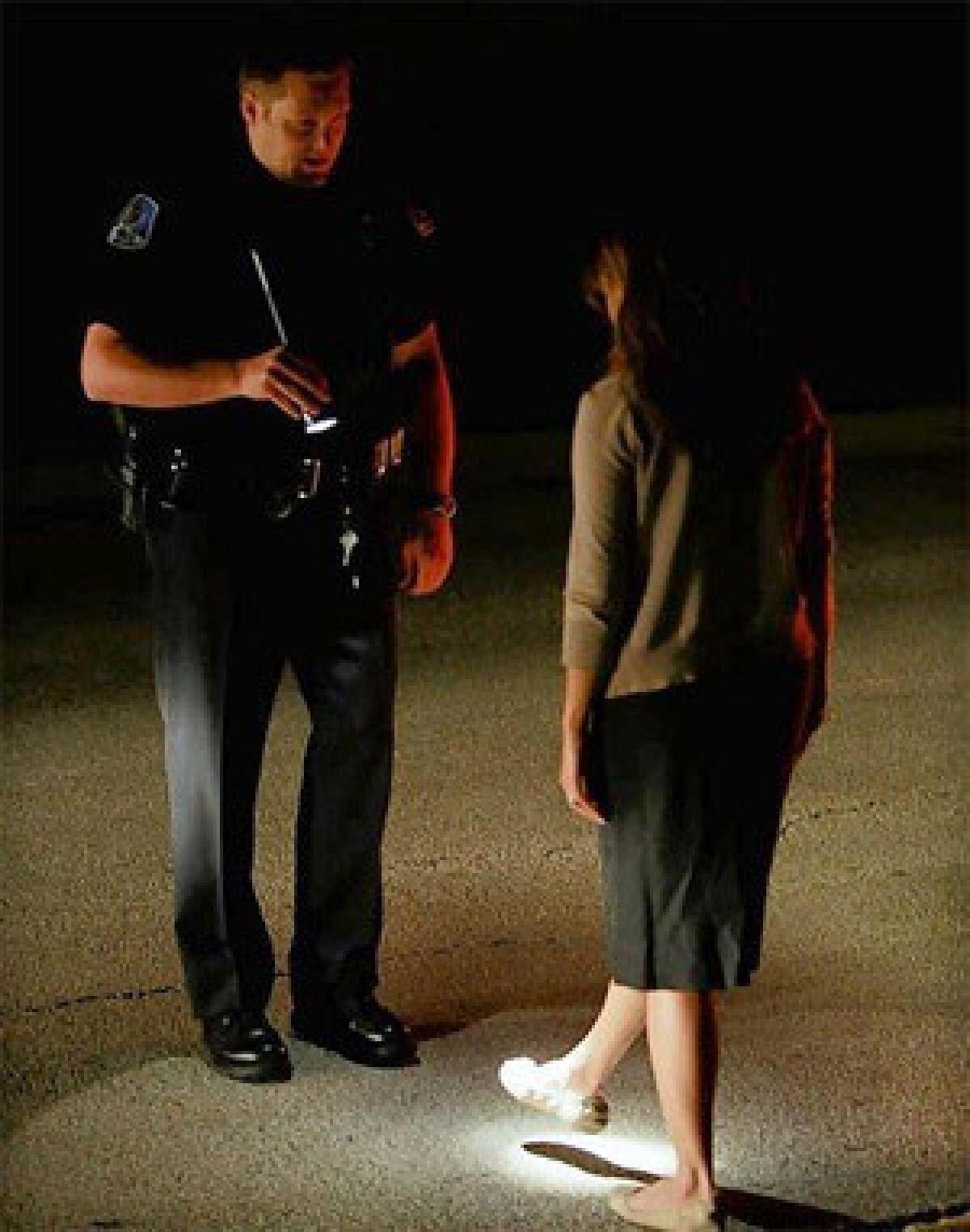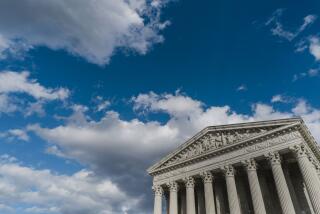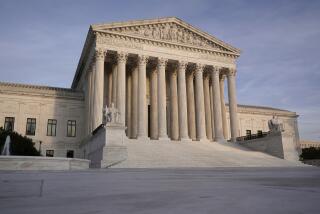Supreme Court to rule on forced tests for DUI suspects

- Share via
WASHINGTON — The Supreme Court has agreed to decide whether motorists suspected of drunk driving who refuse to take a breath test can be forced to have their blood drawn at a hospital.
The ruling in a Missouri case, expected early next year, will help define the powers of the police and the rights of motorists when they are stopped for driving while intoxicated.
In most states, as a condition of obtaining a license, applicants must consent to submit to a test of their breath, blood or urine if stopped on suspicion of drunk driving. Failing to do so can mean their driver’s license will be revoked. Moreover, a jury can be told their refusal to be tested is evidence of guilt.
But judges in some states have balked at going further and forcing suspects to have their blood drawn against their will. Several state high courts have deemed this an “unreasonable search” in violation of the 4th Amendment.
The U.S. high court said it would hear an appeal from Missouri prosecutors who argued that because alcohol in the body quickly dissipates, police need to act fast and require suspected drunk drivers to undergo either a breath test or a blood test.
Lawyers for the American Civil Liberties Union argued that a police officer must obtain a search warrant from a magistrate before compelling a suspect to undergo a blood test.
“In the middle of the night, it’s not always easy to get a search warrant. You usually have a delay of a couple of hours,” said John Koester Jr., the Missouri prosecutor who brought the appeal.
The case began about 2 a.m. on Oct. 3, 2010, when a Missouri State Highway Patrol officer stopped Tyler McNeely for speeding. McNeely’s speech was slurred, and when he stepped from the car, he was unsteady on his feet and failed the roadside sobriety tests, the officer said.
But when put in a patrol car, McNeely refused to provide a breath sample. The officer then drove him to a hospital where he ordered a lab technician to take a blood sample from McNeely. The test showed an alcohol content of .154%, nearly double the legal limit of .08%. The officer made no attempt to obtain a search warrant.
In court, McNeely said the incriminating results should be thrown out because the forced blood test violated his rights under the 4th Amendment. A trial judge agreed, as did the Missouri Supreme Court in March.
The U.S. Supreme Court justices, who had gathered Monday to go over appeals that arrived during the summer, announced Tuesday that they would hear six new cases, including Missouri vs. McNeely.
More to Read
Sign up for Essential California
The most important California stories and recommendations in your inbox every morning.
You may occasionally receive promotional content from the Los Angeles Times.











